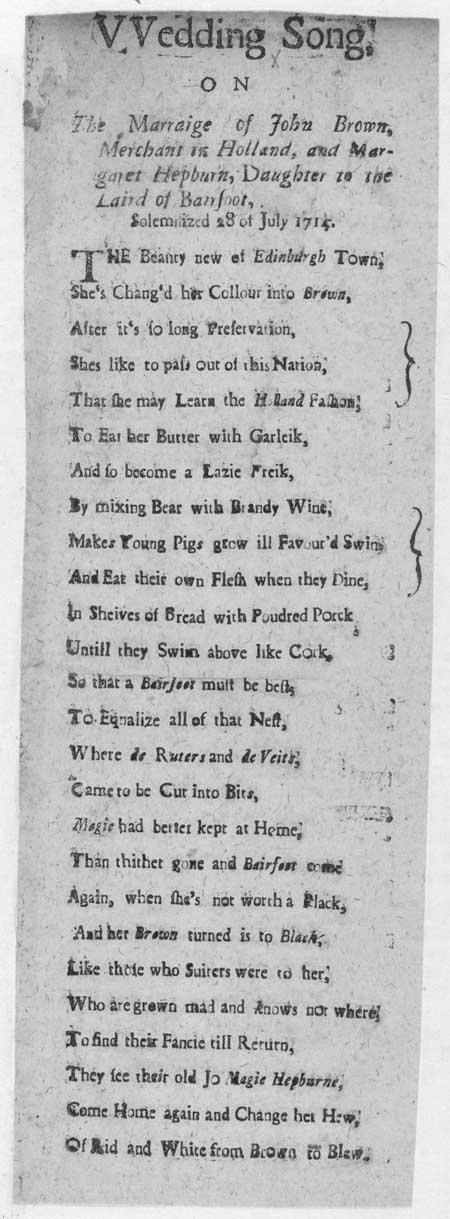Commentary
This ballad begins: 'THE beauty new of Edinburgh town, / She's Chang'd her Colour into Brown, / After it's so long Preservation, / She likes to pass out of this Nation . . . ' Below the title, it is recorded that this wedding song was to celebrate 'the marraige of John Brown, merchant in Holland, and Margaret Hepburn, daughter to the Laird of Bairfoot, solemnized 28 of July 1714'. As suggested by the reference to Laird of Bairfoot (sic), this scurrilous ballad is not a proper wedding song at all, but is instead a savage criticism of a young bride who is leaving Edinburgh for Holland. Such is the contemptuous tone of the song, one would think it had been written by a rejected suitor. At a time (1714) when many colonial wars were being fought, it was customary in Britain to demonise foreign countries - regardless of the strong trade and cultural links that previously existed between Scotland and Holland. It was probably this feverish climate that inspired the writer to talk about Holland as a land where people with brown skins eat garlic, drink brandy 'And Eat their own Flesh when they Dine'. Early ballads were dramatic or humorous narrative songs derived from folk culture that predated printing. Originally perpetuated by word of mouth, many ballads survive because they were recorded on broadsides. Musical notation was rarely printed, as tunes were usually established favourites. The term 'ballad' eventually applied more broadly to any kind of topical or popular verse.
View Transcription | Download PDF Facsimile
|
 |
Date of publication:
1714 shelfmark: Ry.III.a.10(090)
 View larger image
View larger image
|


